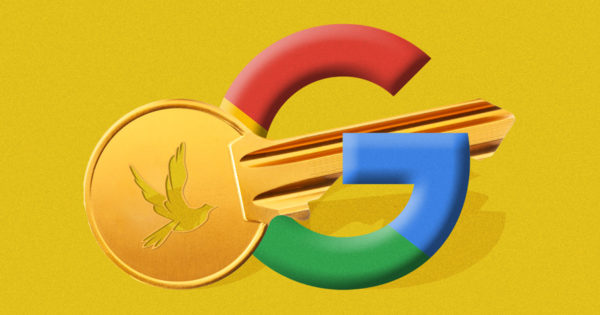
The third-party cookie doomsday clock is now at 15 months, and the ad-tech industry is still at loggerheads over finding a viable replacement for the backbone of web advertising.
Many of these discussions happen on a call every Tuesday within the World Wide Web Consortium’s (W3C) web advertising business group. The most recent call left independent ad-tech scratching its head at Google’s Dovekey proposal.
The main question around Dovekey, the Google Ads team’s proposal to address cookie-less advertising, is who will be the gatekeeper—the entity that connects what happens in the browser with the rest of the ad-tech supply chain.
Turtledove, the Chrome team’s proposal, wants to contain all auction dynamics within the browser. Sparrow, Criteo’s proposal, brings the auctioning outside of the browser and into an independent gatekeeper in part to increase transparency.
Who will be the gatekeeper?
Dovekey sits somewhat in the middle. Auctioning still happens in the browser, but identifiers and contextual signals would be passed to a “key-value server,” the gatekeeper connecting the browser with supply-side platforms and the rest of the ad-tech supply chain.
The Chrome team apparently supported the Dovekey proposal on Tuesday’s call, but the rest of the participants were left with a serious question: Will Google’s ad server be the gatekeeper?
While neither Google team outright said that, two sources on the Tuesday call told Adweek that the implication seems to be that the independent gatekeeper connected to Chrome would be Google’s own ad server, which would strengthen Google’s position and undermine any thoughts of independence.
“If there’s going to be an identifier internally to the browser, that identifier needs to be shared under strict trust governance with an independent entity,” said Tom Kershaw, CTO of Magnite, who was on the Tuesday call. “And the idea that the independent entity is now the other part of Google? I mean, it’s just, it’s laughable.”
A Google spokesperson said Dovekey is an early proposal and there are several options that can be explored, including having an independent organization run the server, similar to the Sparrow proposal. Another option is to use cryptography when looking up key-values, so entities running the server can’t find out what data is being retrieved.
“If it proves feasible, that would enable more players to potentially operate the key-value servers without risking privacy. But it’s worth noting that one of the key benefits of Dovekey is providing stronger trust indicators for the server, which enables more players to potentially operate these key-value servers,” a spokesperson said.
The spokesperson added that the Chrome team was aware of early discussions around Dovekey, but that both teams work independently and that Google engages in public forums like W3C so other companies can test proposals, provide feedback and develop supporting implementations.
W3C control?
The web advertising group doesn’t have decision-making power within W3C. Its purpose is to talk through and develop standards that are ultimately to other parts of the consortium, like the web platform incubator community group (WICG).
Google has an “outsized” amount of influence in WICG, according to the recent antitrust report from the U.S. House of Representatives.
“Other market participants believe that Google is significantly overrepresented in the W3C web platform incubator community group (WICG). They note that Google’s employees comprise 106 members, more than eight times the number of employees from Microsoft, the next largest stakeholder represented. Most companies, meanwhile, have only one representative,” according to the report.
https://www.adweek.com/programmatic/independent-ad-tech-is-poking-holes-in-googles-dovekey-proposal/

